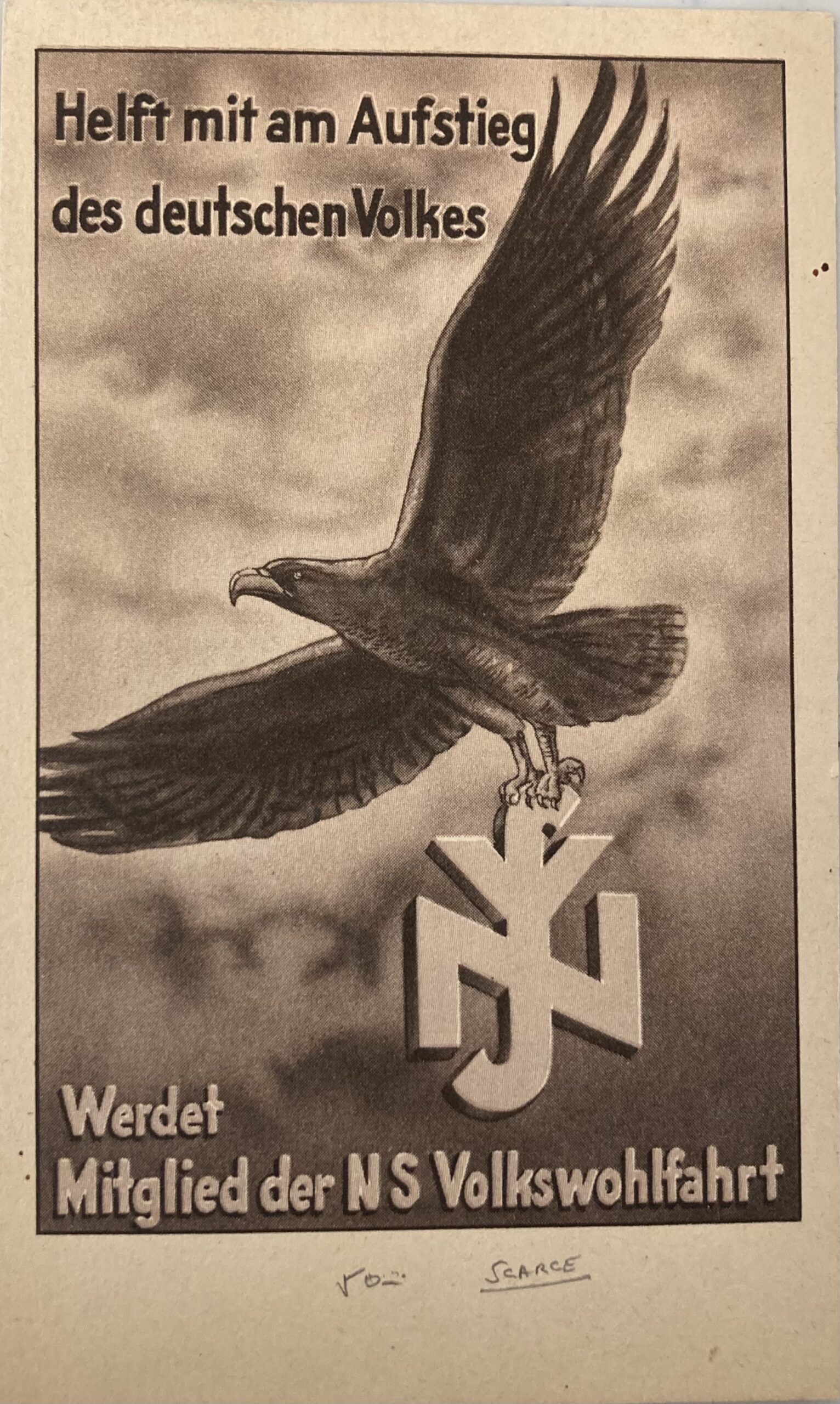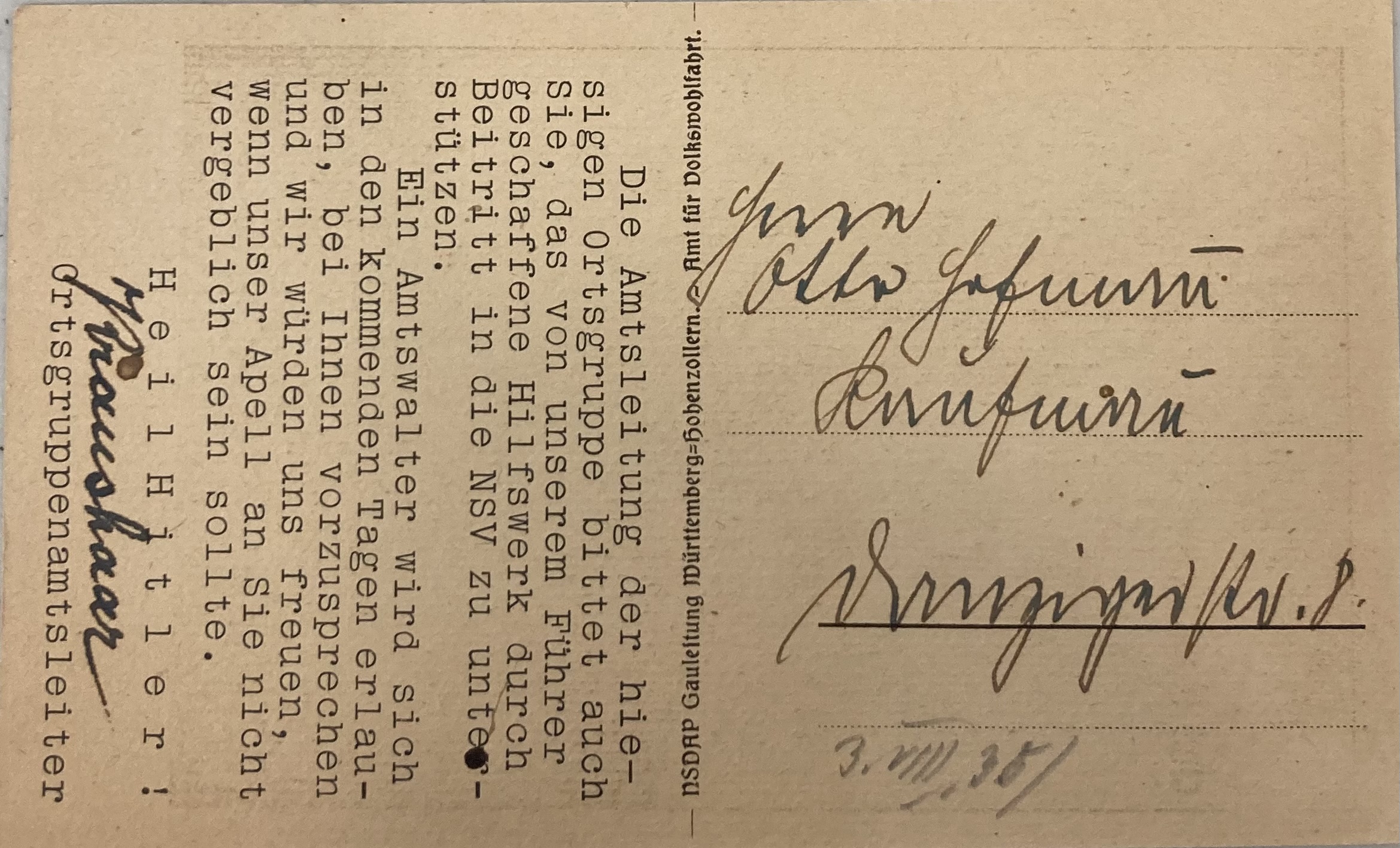Accession Number: 2022.02.14.50
Historical background:
The National Socialist People’s Welfare (NSV) was a social welfare organization during the Third Reich. The NSV was originally established in 1931. On 3 May 1933, shortly after the Nazi Party took power in Weimar Germany, Adolf Hitler turned it into a party organization that was to be active throughout the country disbanding all others.
The NSV restricted its assistance from the very beginning to individuals of “Aryan descent” who met a range of conditions to be deemed worthy of support, officially stating that its aim was to promote “the living, healthy forces of the German people.” The list of those excluded was composed of “alcoholics, tramps, homosexuals, prostitutes, the ‘work-shy’ or the ‘asocial’, habitual criminals, the hereditarily ill (a widely defined category) and members of races other than the Aryan.” Within these limitations, 17 million Germans received assistance under the auspices of NSV by 1939, and the agency operated 8,000 day-nurseries, funded holiday homes for mothers, distributed additional food for large families and was involved with a wide variety of other facilities. It “projected a powerful image of caring and support” for those who were seen as full members of the German racial community, while also inspiring fear through its intrusive questioning and the threat of opening a Gestapo investigation on those who did not fulfill the criteria for support.
In 1945, after Nazi Germany’s defeat in World War II, the NSV was disbanded like all organizations linked to the Nazi Party.


